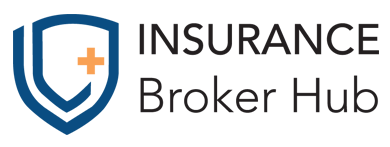Health insurance, a critical aspect of financial well-being, can become a complex maze without proper guidance. Unanswered questions may lead to costly mistakes on your end, too. This may result not only in health-related, but financial loss as well.
For example, improper knowledgeability and confusions in health insurance plans led to $20.5 billion in overpayments to Medicare Advantage (MA) plans. 2023 estimates suggest that this amount increased to over $23.1 billion. While this was attributed to coding and billing errors, having the necessary knowledge about plans could have avoided these issues entirely.
In this article, we will look at some of the frequently asked questions individuals encounter while seeking health insurance plans.
Individual Health Insurance Plan FAQs
Q: What prompts the need to regularly assess my health insurance plan, and is it beneficial to consider a change?
Health needs evolve, and so should your insurance coverage. Regular evaluations ensure your plan aligns with your current health status and financial situation. Adjustments become necessary with changes in providers, coverage, or personal circumstances. Consider changes if you anticipate upcoming medical needs or discover more cost-effective options.
Q: What options do I have if my health insurance provider withdraws from my market?
Explore alternative plans in the marketplace. Losing coverage due to market exits qualifies you for a special enrollment period.
Q: Can I purchase coverage starting January 1 and cease paying for COBRA insurance simultaneously?
Yes, you can align the start of new coverage with the discontinuation of COBRA, ensuring seamless transitions.
Q: How does access to employer-sponsored coverage impact eligibility for subsidized plans through the exchanges?
Access to employer-sponsored coverage affects subsidy eligibility. Evaluate costs and coverage to make informed decisions.
Q: Does my health insurance cover the cost of obtaining a second medical opinion?
Most health insurance plans cover second opinions for major medical decisions. Confirm coverage with your insurer, ensuring the consultation is with an in-network provider. Seeking a second opinion is your right and can provide valuable insights into your healthcare decisions.
Q: What is the Medicaid ‘coverage gap,’ and who does it affect?
The Medicaid ‘coverage gap’ impacts those with incomes below the poverty line, residing in states that didn’t expand Medicaid.
Q: Will the family glitch fix benefit my family?
The family glitch fix aims to make coverage more accessible for families, ensuring they qualify for subsidies.
Q: Do ACA-compliant health plans cover the costs of at-home COVID tests?
Yes, many ACA-compliant plans cover at-home COVID tests, ensuring accessible preventive measures.
Q: How can I obtain health insurance if my employer doesn’t offer it?
Explore individual plans in the marketplace or Medicaid if eligible, ensuring continuous coverage.
Q: How can I choose the best health insurance for my needs?
Evaluate plans based on your health needs, considering costs, coverage, and network providers for finding the best health insurance provider for you.
Q: I moved from Texas to Colorado; how do I transfer my ACA coverage?
Notify your insurer about the relocation, and explore options in Colorado’s marketplace for seamless coverage.
Q: I’m self-employed; is it better to buy insurance through a broker or the exchange?
Consider both options, comparing costs and coverage. Brokers offer personalized guidance, while exchanges provide a diverse range of plans.
Q: As a 21-year-old dependent, do I apply for insurance individually or stay on my parents’ plan?
You can apply individually as a household of one or stay on your parents’ plan until age 26, depending on your preferences.
Q: How do pre-existing conditions influence health insurance coverage?
The Affordable Care Act prohibits denial of coverage based on pre-existing conditions. Insurers must cover essential health benefits, providing comprehensive coverage regardless of pre-existing conditions. Evaluate plans to ensure they cater to specific health needs, considering potential out-of-pocket costs.
Q: My parents are 68 and don’t qualify for Medicare; can they buy insurance on the exchange?
Yes, they can explore marketplace plans and subsidies based on their income and eligibility.
Q: Living in China, what insurance can we get for our visits to the U.S.?
Consider short-term health plans for coverage during U.S. visits, providing temporary protection.
Q: What are the deadlines for Obamacare’s Open Enrollment?
Obamacare’s Open Enrollment deadlines vary, usually starting in November and extending for a specific period.
Q: Does health insurance cover the costs of coronavirus testing and treatment?
Yes, health insurance typically covers COVID testing and treatment, ensuring financial support during the pandemic.
Q: Does opting for a higher-cost health insurance plan equate to better coverage?
Not necessarily. While higher premiums may offer broader coverage, it’s crucial to align your plan with your specific needs. Evaluate deductibles, co-pays, and out-of-pocket limits. A more expensive plan might not be cost-effective if it includes services you rarely use. Strive for a balance that optimally covers your anticipated medical expenses.
Q: Is there still a penalty for being uninsured under the ACA?
The ACA doesn’t impose penalties for being uninsured, but securing coverage remains essential for financial protection.
Q: Who can assist if I encounter issues with ACA-compliant coverage or exchange enrollment?
Contact the exchange or your insurer’s customer service for assistance, ensuring timely resolution.
Q: Can I purchase HSA-compatible health insurance during open enrollment?
Yes, explore HSA-compatible plans during open enrollment to align with your savings goals.
Q: If I miss Open Enrollment for health insurance, what alternatives do I have?
Explore alternatives like Medicaid, special enrollment periods, or short-term health plans. Understanding these options helps you secure coverage even after missing the enrollment window. Evaluate eligibility and the benefits each option offers.
Q: Can young adults remain on their parents’ health plans until age 26 under the ACA?
Yes, the ACA allows young adults to stay on their parents’ health plans until age 26, offering extended coverage.
Q: How do I verify if my doctor is in-network for my health insurance plan?
Check your insurer’s provider directory or website. Directly inquire with your doctor’s office about network status. In-network providers typically offer cost savings. Confirming this detail ensures you receive the maximum benefits from your health insurance plan.
Empowering Your Health Insurance Journey With The Right Guidance
In the world of individual health insurance, knowledge acts as your guiding star. It helps you work through complexities and ensuring informed decisions. Each question addressed brings forth a layer of understanding, empowering you to navigate the nuances of coverage, costs, and eligibility.
On your health insurance journey, remember that your needs are unique, and tailoring your coverage to align with them is paramount. With Insurance Broker Hub as your ally in this journey, you can gain access to expert guidance and personalized solutions.
Don’t leave your health coverage to chance—get a quote today. Our team is ready to assist you in making decisions that not only protect your health but also provide financial peace of mind. Let’s shape your health insurance strategy together. Get a heath insurance quote today for the clarity you deserve and the coverage you need. Your health deserves the best—act now!


